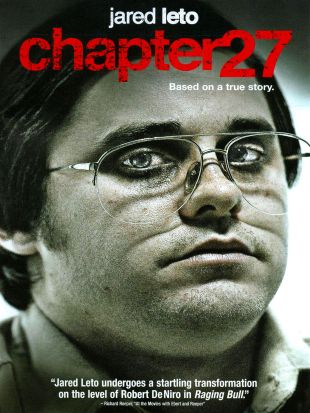
In the opening minutes of the sodden Chapter 27, Jared Leto's Mark David Chapman lets the audience know what he's not going to talk about -- namely, the parental abuse and other childhood horrors that turned him into John Lennon's future assassin. Writer-director J.P. Schaefer thereby forces his audience to draw all the conclusions they're supposed to draw from just those decisive 48 hours in December 1980, as Chapman skulks around the outside of the Dakota and creeps out those who try to extend him any kindness. Not only is this incredibly boring, but because Chapman is so steeped in his own crazy-speak (he thinks he's Holden Caulfield from Catcher in the Rye), it doesn't provide much of a linear explanation for his anger toward Lennon, if that's even what it is. Of course, psychosis is rarely linear, but this is where most other films throw the viewer a bone via some sort of cause-and-effect exposition. Here, we're left only with Leto's drawled, self-aggrandizing narration, and 84 interminable minutes shifting between the Dakota-area sidewalks, Chapman's hotel room, and a local coffee shop. Schaefer's script may be dead on arrival, but Leto is the bigger disappointment, especially for those intrigued by the physical transformation he's undergone to play the dumpy Chapman. Leto's actorly commitment itself may lend him additional credibility, but he squanders it through his indistinct portrayal, which joins a tradition of vaguely Southern loonies whose simplistic musings are supposed to leave the viewer cold. Chapter 27's viewers are left cold alright, but for all the wrong reasons. It's clear Schaefer proceeded without cooperation from Lennon's estate, as there's not a note heard, nor more than a fleeting glimpse of the man himself. That emptiness may be what viewers are supposed to feel; total disengagement, however, is not.
